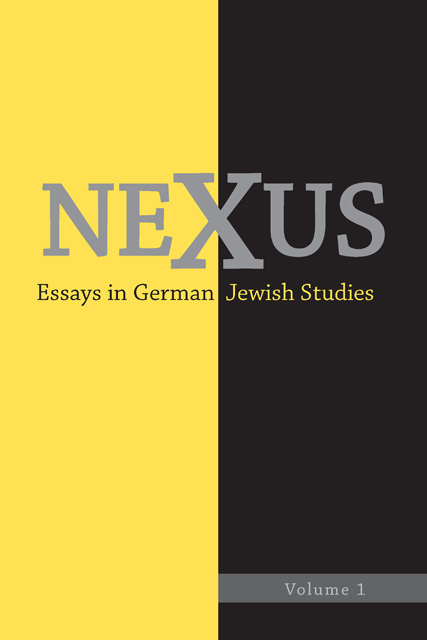Franz Kafka, Hebrew Writer: The Vaudeville of Linguistic Origins
Published online by Cambridge University Press: 10 February 2023
Summary
This essay analyzes Kafka’s letter in modern Hebrew to his teacher Puah Ben-Tovim, who grew up near Eliezer Ben-Yehuda in Jerusalem. The letter suggests how Hebrew’s re-emergence from a hidden vaudeville of sources finds humorous reflection in Kafka’s late prose, especially The Castle. Kafka’s covert survey of modern Hebrew and its “assistant” languages, in turn, suggests a permeable boundary between German and Jewish writing: a concept of national identity that requires both a messianic and a humorous recovery of the past.
In 1923, Franz Kafka wrote a fluent letter in Hebrew to Puah Ben-Tovim, his Hebrew teacher from Palestine who had been born in Jerusalem, a letter in which the transnational traces of the modern Hebrew renaissance are inscribed. Ben-Tovim had grown up in the same Jerusalem neighborhood as Eliezer Ben-Yehuda, the “father of modern Hebrew,” giving Kafka a kind of direct line to the rebirth of modern Hebrew, and to a hidden comedy in the formation of the new national language as well. As a flagship for the national project, Ben-Yehuda’s newspaper and his allied dictionary aimed to create “as pure a Hebrew as possible,” and return the Jewish people to its ancestral linguistic roots. At the same time, Puah Ben-Tovim’s childhood neighbor spent much of his time importing foreign words into modern Hebrew via the process of loan translation to fill in lexical gaps, producing new “Hebrew words on the basis of European languages, in particular, on the basis of Latin and Greek words found in the Mishna and the Talmud” as well. As the imagery of Kafka’s The Castle suggests, a kind of endless linguistic survey overtook Ben-Yehuda, one that the surveyor’s assistants in the novel bring into comic focus for its catch-22: the same “assistant” languages required to achieve this messianic task made it impossible for Ben-Yehuda to draw a straight line between “national” and foreign sources of the renascent Hebrew tongue, especially since this transnational contact had been underway since ancient times. In this essay, I will be looking at Kafka’s modern Hebrew letter to Puah Ben-Tovim with this linguistic history in mind. I will be arguing that modern Hebrew’s emergence from a hidden vaudeville of national sources finds a humorous reflection in Kafka’s late German prose: a process which, in turn, reflects the hidden openness of standard languages, and the permeable boundaries of German and Jewish writing as well.
- Type
- Chapter
- Information
- Nexus 1Essays in German Jewish Studies, pp. 137 - 152Publisher: Boydell & BrewerPrint publication year: 2011



